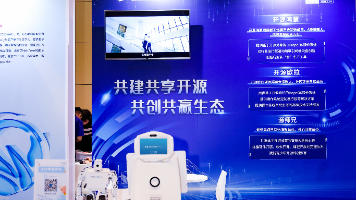鸿蒙5.0开发实战案例:自定义组件实战指南
本文介绍了鸿蒙开发中的自定义组件功能,通过方舟开发框架示例展示了如何封装和调用自定义组件。示例包含三部分:1)构建包含HTML模板、CSS样式和JS逻辑的自定义组件;2)在父组件中引入并使用该组件;3)实现父子组件间的数据双向传递(props传递和$emit事件触发)。
·
📑往期推文全新看点(文中附带最新·鸿蒙全栈学习笔记)
✒️ 鸿蒙应用开发与鸿蒙系统开发哪个更有前景?
✒️ 嵌入式开发适不适合做鸿蒙南向开发?看完这篇你就了解了~
✒️ 对于大前端开发来说,转鸿蒙开发究竟是福还是祸?
✒️ 鸿蒙岗位需求突增!移动端、PC端、IoT到底该怎么选?
✒️ 记录一场鸿蒙开发岗位面试经历~
✒️ 持续更新中……
使用兼容JS的类Web开发范式的方舟开发框架支持自定义组件,用户可根据业务需求将已有的组件进行扩展,增加自定义的私有属性和事件,封装成新的组件,方便在工程中多次调用,提高页面布局代码的可读性。具体的封装方法示例如下:
- 构建自定义组件
<!-- comp.hml -->
<div class="item">
<text class="title-style">{{title}}</text>
<text class="text-style" onclick="childClicked" focusable="true">点击这里查看隐藏文本</text>
<text class="text-style" if="{{showObj}}">hello world</text>
</div>
/* comp.css */
.item {
width: 700px;
flex-direction: column;
height: 300px;
align-items: center;
margin-top: 100px;
}
.text-style {
width: 100%;
text-align: center;
font-weight: 500;
font-family: Courier;
font-size: 36px;
}
.title-style {
font-weight: 500;
font-family: Courier;
font-size: 50px;
color: #483d8b;
}
// comp.js
export default {
props: {
title: {
default: 'title',
},
showObject: {},
},
data() {
return {
showObj: this.showObject,
};
},
childClicked () {
this.$emit('eventType1', {text: '收到子组件参数'});
this.showObj = !this.showObj;
},
}
- 引入自定义组件
<!-- xxx.hml -->
<element name='comp' src='../../common/component/comp.hml'></element>
<div class="container">
<text>父组件:{{text}}</text>
<comp title="自定义组件" show-object="{{isShow}}" @event-type1="textClicked"></comp>
</div>
/* xxx.css */
.container {
background-color: #f8f8ff;
flex: 1;
flex-direction: column;
align-content: center;
}
// xxx.js
export default {
data: {
text: '开始',
isShow: false,
},
textClicked (e) {
this.text = e.detail.text;
},
}
本示例中父组件通过添加自定义属性向子组件传递了名称为title的参数,子组件在props中接收。同时子组件也通过事件绑定向上传递了参数text,接收时通过e.detail获取。要绑定子组件事件,父组件事件命名必须遵循事件绑定规则。自定义组件效果如下图所示:
图1 自定义组件的效果

更多推荐
 已为社区贡献37条内容
已为社区贡献37条内容








所有评论(0)